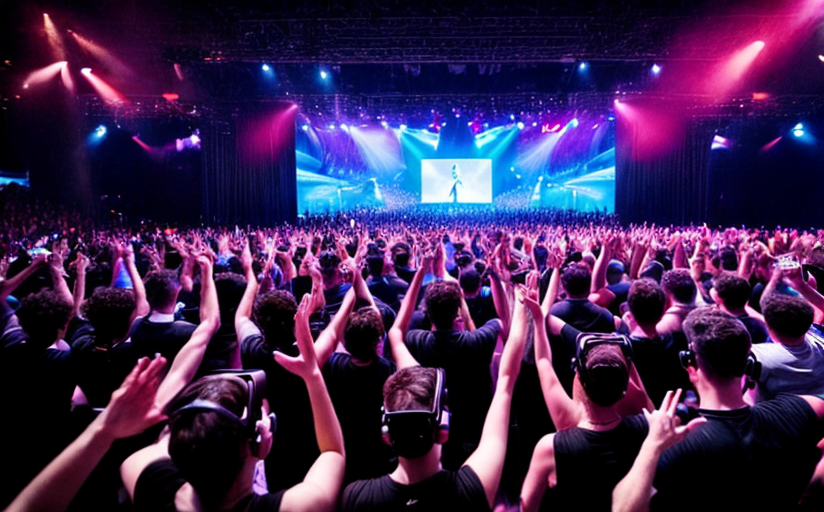The Evolution of Virtual Reality Concerts in the Music Industry
A defining moment for the music industry, Virtual Reality (VR) technology and its adoption to live music performances have massively altered the landscape. This technology has not only revolutionized how artists and audiences experience concerts, but also the business dynamics of the music industry itself.
Inception of VR in Live Music
The roots of VR concerts date back to 2014 when U2 partnered with Vrse Works (now known as Within) to perform a song in what was one of the first attempts at a VR concert. More companies like NextVR started streaming concerts in addition to sports events, marking the early stages of incorporating VR into the music industry.
Impact on Artists and Audiences
VR concerts have completely redefined performance dynamics. With VR, artists can perform to global audiences without location constraints. On the other hand, audiences enjoy an immersive experience, simulating the excitement and intimacy of live performances from the comfort of their homes.
Developments and Milestones
In 2016, Coldplay's groundbreaking Ghost Stories concert gave an incomparable VR concert experience. During the pandemic lockdowns, Travis Scott’s Fortnite concert and Billie Eilish's virtual show drew massive global audiences, setting new standards for future VR concerts.
Statistics and Successes
Virtual concerts are now big business. Wave, a VR concert start-up, raised $30 million in 2020. Meanwhile, Sensor Tower reported Fortnite's Travis Scott event generated an estimated $20 million including merchandise.
Future of VR in Live Music
With advancements in technology, creating more realistic and immersive experiences, VR concerts are set to explode. Yet, concerns on issues such as VR motion sickness, accessibility, and technology costs may pose challenges.
Expert Opinions
Jon Ola Sand, executive supervisor for the Eurovision Song Contest, is optimistic about the future, stating that we can reach out to an unlimited audience. However, usability expert, Jakob Nielsen cautions about VR's limitations, warning that users are tethered, overheat easily, and get nauseous.
Conclusion
The continuing evolution of VR concerts has left a significant mark on the music industry, shifting both the artist's performing experience and the audience's viewing experience. As technology continues to break barriers, VR concerts may soon become the new normal for music performances, promising as astounding yet challenging future.
















Comments
Leave a Comment